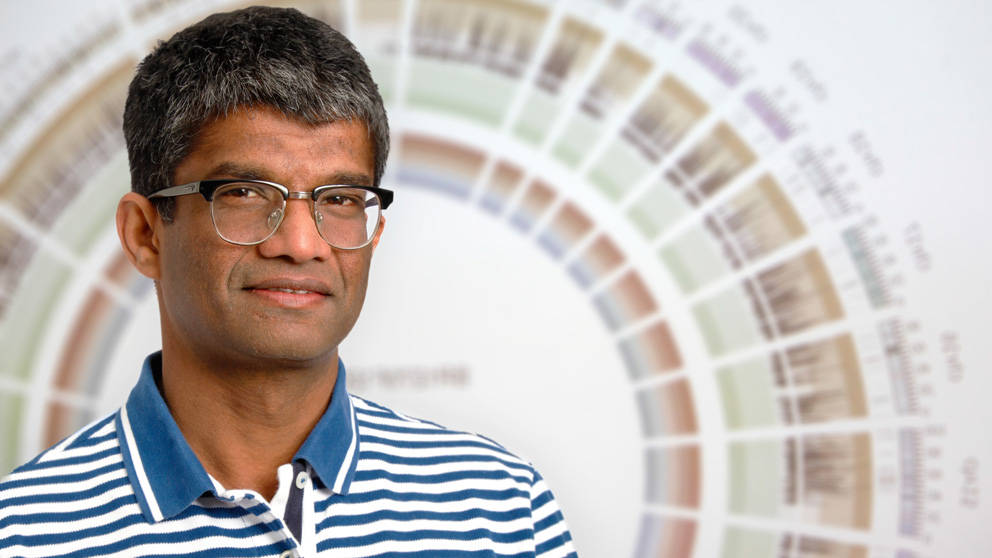
Q: What was your career path to JAX?
A: I did my undergraduate and master's degree in electronics and communication engineering in India, and worked in signal processing and machine learning algorithms in several research organizations in India and Singapore. In 2003 I learned that several of the methods used in speech and image processing have applications in biology and was lucky to get an opportunity to work at the then newly started Genome Institute of Singapore [founded by JAX President and CEO Edison Liu, M.D.]. I found the field fascinating and moved to the Peter MacCallum Cancer Center in Australia to do my Ph.D. in ovarian cancer genomics. I worked in the research division there for seven years before I joined JAX Genomic Medicine in August 2013.
Q: Why did you want to work at JAX?
A: I believe that The Jackson Laboratory is uniquely placed to play a major role in personalized medicine, and I consider myself very lucky to be a part of this team.
Q: What is computational biology, and why is it important?
A: Computational biology is the application of computer science, mathematics and statistics to solve problems in biology. On a practical level a computational biologist is someone who makes use of techniques from different fields like machine learning and algorithm design to solve problems in biology.
Experiments to understand biological processes generate vast amounts of data. Computational biologists help to transform these raw data into biologically meaningful information and ideally should be involved in all aspects of the study, starting from the design of experiments.
Q: What projects are you working on right now?
A: I work as a computational scientist in the Computational Sciences – Statistics & Analytics group and do research in collaboration with several faculty members. My current projects include computational methods to estimate the genetic, epigenetic and transcriptional profiles of cells involved in diabetes, cancer and autoimmune diseases.
I also coordinate the efforts to characterize the genome of patient-derived xenograft (PDX) models developed at JAX. PDX models are essentially human tumors engrafted in immunodeficient mice and are excellent models to study therapeutic response to cancer. We assess the genomic mutations and gene-expression profiles of these tumors using next-generation DNA sequencing technology.
Q: What do you like most about your job?
A: The most interesting point about my job is its great variety. Every project involves the study of a new aspect of biology, and that is intellectually very stimulating. It is really fun to be part of a group of scientists who are very enthusiastic about their research.